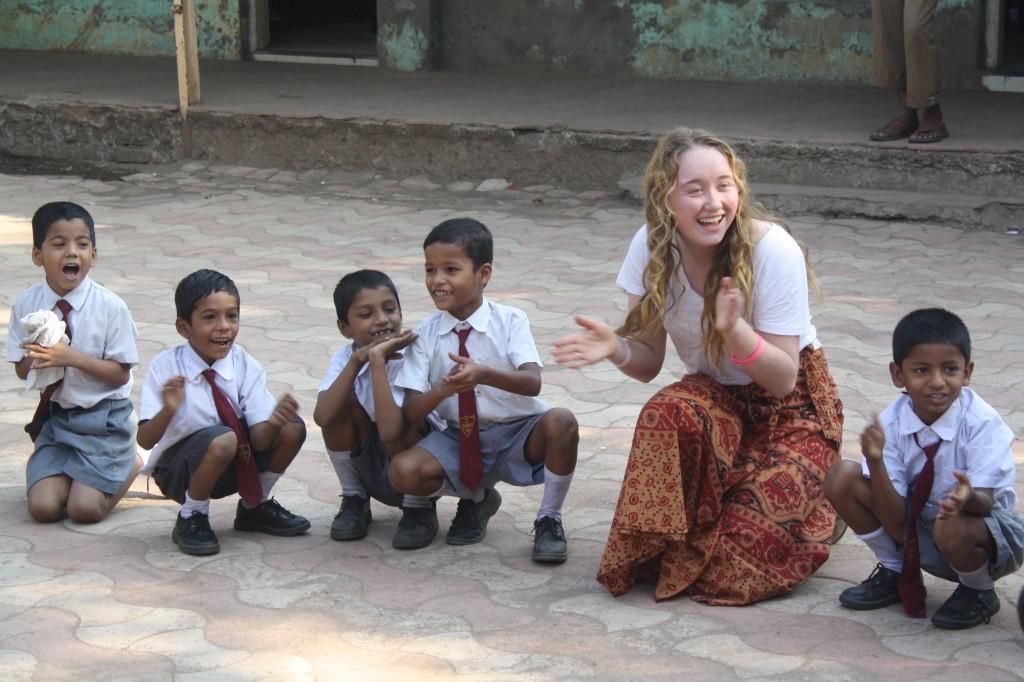Urban’s curriculum committee is tackling the new frontier of global education as part of its Vision 2013 initiative. Over the next few years, students can expect to get Skype buddies, study global issues such as poverty, and travel to foreign lands — though trips may take place more often via a keyboard than an airplane.
“We have been thinking about global education,” confirmed Emily Morris (’13), a member of Urban’s curriculum committee, adding that “global education doesn’t necessarily mean lots of trips.”
Instead of journeying outside the classroom, Urban plans to use technology to make student global citizens. According to Steve “Esteban” Speier, head of the language department, a student in Spanish class at Urban may have a Skype buddy in a high school level English class in Chile. They would engage in a 10-minute conversation in English followed by a 10-minute conversation in Spanish.
In today’s shrinking world, it’s clear that global education may quickly become a necessary part of a complete education.
“I believe that Urban students go on to be extraordinary leaders,” says Spanish and service learning teacher Tomás Jacquez. Accordingly, “we feel that students need to be equipped with a multicultural and global skill set and literacy,” Jacquez said.
The de-emphasis on trips aside, there’s definitely a global spin at Urban these days. A group of nine Urban students went on a school-sponsored trip to China last summer, and Upperclassmen Dean Dan Matz led a 19-day trip to India for students in December. Chinese students also visited Urban in February as part of a student exchange.
Urban students who have gone abroad on family or school-sponsored trips say that such experiences can produce valuable insights about everything from global warming to poverty.
“I think there is a huge benefit to global education,” said Anne Vetter (’12). “When I lived last year in the Bahamas, I got a totally different perspective. It changed the way I saw my own life after seeing how so many people lived.”
“More than just exposure to another culture, living in a different place allowed me different opportunities,” Vetter said. “For example, I can’t go out scuba diving (at home) and see the effects of climate change on the oceans in San Francisco.”
“There is a huge difference between what you hear and what you see,” says Cole Larsen (’12), who went on the December trip to India. “For example, going to a slum —reading about it, you can get a sense (of things), but not until you see it in the context of the city, juxtaposed with the extreme wealth do you begin to understand.”
Leaving the Urban classrooms pushes students to explore an entirely different kind of learning. “I learned how not to only think of myself as a student, dissecting everything, but as a listener,” says Hannah Gorman (’12), who went on an Urban trip to McComb, Miss., last spring. “And when I am in a culture I know nothing about, everyone is a teacher. I got to let go of my filters and just listen.”
Matz agrees that on trips, “there is a different kind of learning that happens.”
However, even a global learning initiative can’t reach everyone. The financial aid on Urban’s international trips will be consistent with the percentage of aid provided to the student for tuition.
“One way to think about global education is (as) 21st century education,” Matz said. “A strategic global education plan will not involve a lot of trips. The Urban School is about what happens in the classrooms.”
Students agreed. “I don’t think I am missing anything,” says Megan Madden (’12), who took Matz’s South Asian class but did not go on the India trip. But she added that “kids who went to India have the ability to be personally invested in something, (and) thus have more interest to study.”
Self-reflection and exploration may also help Urban students to understand their place in the world. “We are focusing on what kind of skills we want Urban students to graduate with,” says Morris. “We want students to develop skills as attitudes and aptitudes and become active learners. People who search for the why of every what.”
“We are at a point now of change of leadership in the world,” said Jacquez. “To make the planet a better place, communities are going to have to come together on an international level.”
Apart from exposure to different cultures and developing a different approach to learning, going abroad “helps you see how you view your own country,” says Larsen. That self-reflective experience was “the most powerful part of the trip,” says Matz. India “was so confounding that you couldn’t help but take those things in and ask questions about yourself and your place in the world.”

